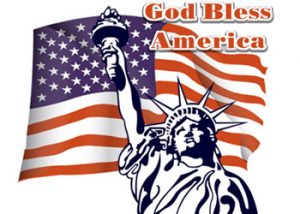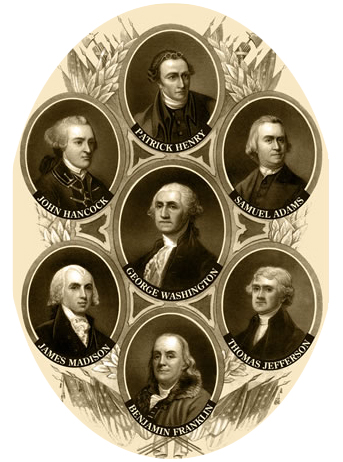Happy 4th of July From EZ Comics
 In America the Fourth of July is more than a chance for family and friends from different parts of the country to gather for barbecues and fireworks displays, it is an annual commemoration to pay homage to the courage and faith of our founding fathers in their pursuit of liberty.
In America the Fourth of July is more than a chance for family and friends from different parts of the country to gather for barbecues and fireworks displays, it is an annual commemoration to pay homage to the courage and faith of our founding fathers in their pursuit of liberty.
Independence Day is the celebration of the passage of the Declaration of Independence from the Kingdom of Great Britain by the Continental Congress on July 4th, 1776. The Declaration of Independence is more than just a piece of paper. It is a symbol of our country’s independence and commitment to certain ideas. It is a very detailed decree with the decisions of the colonies that they no longer would need to be governed by the Kings of England that had been so very unjust to the colonists in the years before.The signers of the Declaration of Independence wanted the citizens of the United States to have a document that spelled out what was important to our leaders and citizens. The people who signed the Declaration risked being hanged for treason by the leaders in Great Britain. They had to be very brave to sign something that would be considered a crime!So every time we look at the Declaration of Independence, we should think about all of the effort and ideas that went into the document and about the courage it took for these people to stand up for what they knew was right.
At the time of the signing the US consisted of 13 colonies under the rule of England’s King George III. There was growing unrest in the colonies concerning the taxes that had to be paid to England. This was commonly referred to as “Taxation without Representation” as the colonists did not have any representation in the English Parliament and had no say in what went on. As the unrest grew in the colonies, King George sent extra troops to help control any rebellion. In 1774 the 13 colonies sent delegates to Philadelphia Pennsylvania to form the First Continental Congress. The delegates were unhappy with England, but were not yet ready to declare war.
In April 1775 the King’s troops advanced on Concord Massachusetts. The battle of Concord would mark the unofficial beginning of the colonies war for Independence. The following May the colonies again sent delegates to the Second Continental Congress. For almost a year the congress tried to work out its differences with England, again without formally declaring war.
By June 1776 their efforts had become hopeless and a committee was formed to compose a formal declaration of independence. Headed by Thomas Jefferson, the committee included John Adams, Benjamin Franklin, Robert R. Livingston and Roger Sherman, the Founding Fathers. Thomas Jefferson was chosen to write the first draft which was presented to the congress on June 28. After various changes a vote was taken late in the afternoon of July 4th. Of the 13 colonies, 9 voted in favour of the Declaration, 2 – Pennsylvania and South Carolina voted “No”, Delaware was undecided and New York 
abstained.
To make it official John Hancock, President of the Continental Congress, signed the Declaration of Independence. It is said that John Hancock signed his name “with a great flourish” so “King George can read that without spectacles!”
The following day copies of the Declaration were distributed. The first newspaper to print the Declaration was the Pennsylvania Evening Post on July 6, 1776. On July 8th the Declaration had its first public reading in Philadelphia’s Independence Square. Twice that day the Declaration was read to cheering crowds and pealing church bells. Even the bell in Independence Hall was rung.
And although the signing of the Declaration was not completed until August, the 4th of July has been accepted as the official anniversary of United States independence. The first Independence Day celebration took place the following year – July 4 1777.
The 4th of July, national day of the United States, has become the celebration of history, government, and traditions of the country with fireworks, parades, barbecues, carnivals, fairs, picnics, concerts, baseball games, political speeches and ceremonies, and various other public and private events.
